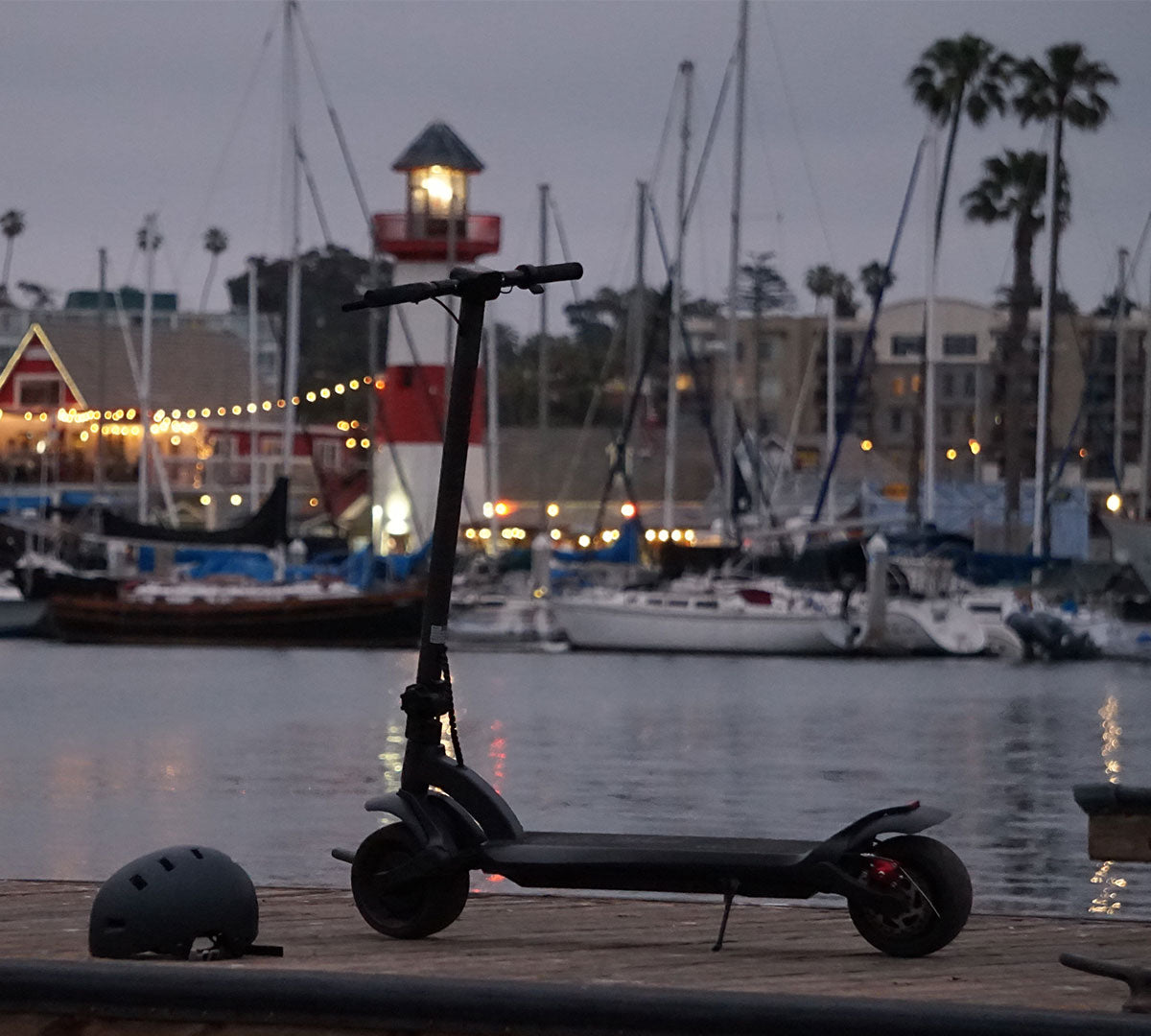Are Electric Vehicles the Future?
- Read Time: 13 min
It would take a brave man to suggest that electric vehicles are not the future as things stand today. The world is ready for change and world leaders are all promoting and advocating for a future with the electric vehicle at the forefront as opposed to internal combustion engines. As are many companies in the auto industry.
F.e by 2035 all General Motors brands are set to be fully electric and many automakers have similar goals. New cars will be all-electric vehicles.
Even the aviation industry is developing electric planes. Norway has stipulated that all domestic flights lasting up to 1,5 hours should be electric by 2040 latest.
Carbon dioxide emissions need to come down due to global warming and it looks like internal combustion engines will not lead the new car sales figures in the future. Ev sales are growing.
EV - Electric Vehicles
And even though we might think the electric vehicle is a relatively new concept it is not. In fact, had things turned out differently at the beginning of the 20th century, we might have had electric motors in cars instead of internal combustion engines as the preferred choice.
As far back as 1881, a french inventor fitted a rechargeable battery to a tricycle which is credited as the first electric vehicle for personal transport.
However, the automotive industry found that burning oil was much more efficient for such vehicles and the internal combustion engine was here to stay.
Although batteries kept developing, it is safe to say that they took a backseat when it came to research and development compared to gasoline-powered cars which became the preferred choice for smaller vehicles.
So the electric cars had to wait another 130 years or so before gaining momentum.
But electric transport and ev adoption were not dead. Trains, subways, and tramlines were areas where electricity was often the preferred choice. Not to mention smaller trucks, forklifts, mobility vehicles, etc.
Electric trains, buses, subways, and tramlines needed to be connected to the power grid at all times to function. This means you don't have the same mobility as vehicles that don't need to rely on being plugged in on the go.
Battery technology was and to a certain extent still is the biggest challenge for the EV market.
Developing ever-better batteries and charging infrastructure is a big part of ensuring the electric future is a viable option for passenger cars.
After all, even if the batteries are developing and improving, what is the use if there are too few charging stations?
One option to the fully electric car that caught on was hybrid vehicles. A bit of both worlds that is not totally reliant on electricity but rather a compliment to the internal combustion engine.
Battery-Powered Electric Vehicles

But now the world is changing rapidly and emission standards are at the forefront of the agenda for the car industry.
At the root and heart of it all, is the battery and the technology around it. Further development of energy density and how effective it can be is key.
The advances in recharging time, life cycles, storage capacity, and overall effectiveness in the last 20 years, have now made it possible to be an alternative for car buyers when they consider their choice of car and a booming electric car market is the result.
But there are still many challenges to overcome.
In a nutshell, the heavier the object, the more challenging it is for the battery.
And they are very expensive to manufacture. The predominant materials in battery chemistry are lithium, nickel, cobalt, manganese, steel, and graphite which are steadily rising in price and also challenging to excavate.
Several companies are now looking to develop sodium-ion or lithium-sulfur-based batteries which are cheaper materials but with their own set of particular challenges.
In all fairness, when it comes to bigger vehicles such as cars, trucks, or other heavy machinery, the battery technology still can't match the versatility the burning of fossil fuels can create. It will take some time before we see an all-electric fighter jet.
The power-to-weight ratio is always a challenge and especially so for a rechargeable battery.
The automotive industry has made enormous progress but there is still a long way to go for the ev industry to catch up.
However, looking at smaller lighter vehicles, the picture is vastly different. In fact, it is almost the opposite scenario. Who would, for instance, choose a gasoline-powered kick scooter instead of an electric one? It wouldn't make any sense.
The electric scooter is a perfect example of where the power-to-weight ratio works in favor of the vehicle rather than against it. It requires smaller batteries and electric motors than their bigger equivalents.
Switching to Electric Vehicles

Climate change is a worry and most understand that and take it seriously. Carbon neutrality is the holy grail all are trying to achieve and reach. Conventional cars are seen as an enemy to that, and tailpipe emissions are to be avoided at all costs.
But herein lies a challenge for many potential electric car buyers.
Electric cars are expensive. Eyewatering so in many cases. Not only that, they do not have the same life length as a conventional car with their original battery pack. And replacing batteries is, yes you guessed it, extremely expensive and almost negates the lower maintenance costs an electric car has in comparison to a regular one.
But you might yet not need the electric car. There are alternatives.
Electric Scooters

Electric scooters have developed tremendously in the last 10 years and now offer a wide variety of versions. From ultraportable lightweight to proper beasts capable of 62 mph (100 kph) top speeds and 90 miles (144 km) of range.
This might be a perfect entry point into the world of electric vehicles, and you can get one for as low as a couple of hundred dollars.
In fact, the electric scooter has so many benefits, it feels like every household should have one. They are practical as they are foldable and possible to transport in the trunk of your car in a way a bike can't match.
It can be the perfect last-mile solution. Instead of parking in a congested inner city, park 10 minutes away from work and scoot those last miles without breaking a sweat. Hop on your scooter to go to the gym instead of by car. Go for a coffee downtown? Use the electric scooter.
Recharging them does not require a specific charging network, just plug them into your regular outlet at home.
Eventually, the battery will need replacing but the cost of that is nothing compared to an electric car's battery replacement.
The power-to-weight ratio is much more attractive on a smaller electric vehicle such as the electric scooter or an e-bike and in so, makes a lot of sense.
Electric vehicles - Environment & Emissions
Even though the electric car seems popular and for the powers that be, is considered the solution as far as zero tailpipe emissions go, it is not yet perfected and not all that clean.
Sure enough, once on the road, it is clean, but it needs to get there and that is a process that is far from carbon neutral.
This is a controversial topic but regardless of that, facts are facts. The manufacturing of car batteries and the excavation needed does little for the air quality. This is true for the manufacturing of all batteries. But the bigger they need to be, the more energy is spent on finding the materials, transporting them, and eventually putting them into production.
A lighter and smaller battery electric vehicle does not have that same negative impact as it needs less of what is needed when manufactured.
In this case, it would be a huge difference in air quality if everybody used them instead of petrol-powered options. You might have seen images of major cities somewhere in the world where many are using mopeds or smaller motorcycles due to incredibly congested traffic and the resulting smog is astonishing. Imagine if all were using electric scooters or e-bikes instead.
But there is no getting around it, batteries and the manufacturing of them do have an impact on the environment.
In order to reduce that impact and improve on the carbon footprint, fluidfreeride plants a tree for each electric scooter sold.
EV infrastructure
But the challenge does not stop there for electric cars. They need charging and an infrastructure that is not yet fully explained how it will be developed on a global basis. You can't just plug your car into the regular AC/DC socket and voila, recharged and ready to go.
Electric cars require high-voltage systems and need to cover vast amounts of areas and locations. This is a monumental task.
In contrast, the electric scooter needs a regular outlet that already exists everywhere.
The more you think about it, the more it makes sense. And once you try an electric scooter, you will most likely be hooked and see the potential it has as a problem solver and they are fun to ride as well. What's not to like?
The future of electric vehicles
Reports indicate that all new car sales by 2040 will be electric although half of all cars still on the road will be powered by fossil fuels.
For now, electric vehicles are in the early adopters stage but will see exponential growth in the use of new EVs over the next 15 years. There are still some areas where improvements such as longer driving range, faster recharging, and better effectiveness in lower temperatures must be addressed in order to appeal to the majority of car buyers.
Aggressive statements from car manufacturers on the number of ev models they will produce and develop, as well as EV data science policies from governments around the world, are pushing the agenda.
This will reduce carbon emissions to 1.7 billion metric tonnes which is a step in the right direction, to say the least.
But the EV penetration for bigger electric vehicles is dependent on charging infrastructure and charging stations further development in combination with renewable energy sources. The burning of coal in order to provide the electricity needed is not the solution for the future.
Smaller electric vehicles though, such as the e-bike and electric scooter are not dependent on a huge charging infrastructure or to the same extent a development of technology. They are lighter, do not require extremely big batteries, and are easy to recharge in a regular outlet. That is probably some of the reasons we see a growing number of electric scooters on a daily basis.












